Содержание
- 2. CHAPTER I PURPOSES AND PRINCIPLES Article 1 The Purposes of the United Nations are: To maintain
- 3. Article 14 – Vienna 1961 1. “Heads of mission are divided into three classes, namely: (a)
- 4. All International law can be considered diplomatic law; and, on the contrary, all diplomatic law can
- 5. Consular immunity Consuls like diplomats, represent their state in another state, but, unlike diplomats, they are
- 6. Consular immunity Consulates often are based in provincial towns as well as in capital cities. In
- 7. VIENNA CONVENTION ON CONSULAR RELATIONS Article 5 ”CONSULAR FUNCTIONS” Consular functions consist in: (a) protecting in
- 8. (d) Issuing passports and travel documents to nationals of the sending State, and visas or appropriate
- 9. APPOINTMENT AND ADMISSION OF Consul Article 12 “THE EXEQUATUR” 1. The head of a consular post
- 10. STATE RESPONSIBILITY Session 12 & 13 What do you know about responsibilities?
- 11. The meaning of responsibility under international law Responsibility is associated with “obligations”. State responsibility under international
- 12. When a state responsibility/liability arises? A state can incur liability for either “intentional” or “negligent” conduct.
- 13. Fundamental Elements of State Responsibility The existence of a legal obligation recognized by International Law. An
- 14. State Responsibility vs State Sovereignty
- 15. SOVEREIGN IMMUNITY When sovereign immunity applies, one State’s judge cannot assert jurisdiction over another state in
- 16. Equality of States Why does a country have immunity from suit in the courts of another
- 17. The scope of sovereign immunity States Heads of State State government agencies that are conducting State
- 18. Types of Immunity Absolute Immunity A foreign head of State was not subject to any civil
- 19. Restrictive Immunity Most States currently apply some form of the restrictive standard for resolving sovereign immunity
- 20. Thank You & See You In Mid Semester Exam
- 21. Human Rights (Session 15 & 16) What is the meaning of the term “human rights” according
- 22. The Meaning of Human Rights Human rights are those rights possessed by an individual that cannot
- 23. DEFINITION HUMAN RIGHTS is defined as the supreme, inherent, and inalienable rights to life, to dignity,
- 24. RIGHTS – moral power to hold (rights to life, nationality, own property, rest and leisure), to
- 25. History of H/R First the term appeared in I/L in the period of France revolution. In
- 26. Five categories of Human Rights Civil – the right to be treated as an equal to
- 27. Legal basis Human rights Treaties Conventions, Covenants Declarations Contain detailed lists and definitions of human rights
- 28. Legal basis - UN Charter Sets the promotion of and respect for human rights for all
- 29. Characteristics of Human Rights Universal Internationally guaranteed Legally protected Protects individuals and groups Cannot be taken
- 30. International Bill of Human Rights The 1948 Universal Declaration of Human Rights (UDHR) The 1966 International
- 31. The 1948 Universal Declaration of Human Rights (UDHR) First Category covers “civil and political rights”: The
- 32. The 1948 Universal Declaration of Human Rights (UDHR) Second category consists of economic, social, and cultural
- 33. The four freedoms Franklin D. Roosevelt proposed four fundamental freedoms that people "everywhere in the world"
- 34. Definitions in the Charter Human Rights Basically Civil and Political Rights (ICCPR) Include any other right
- 35. Human Rights Treaties in Europe The European Human Rights Convention (ECHR) contains civil and political rights
- 36. Latin America’s Human Rights Norms The 1948 Charter of the Organization of American States (OAS). The
- 37. Africa’s Human Rights Program The 1986 African Charter on Human and People’s Rights. The 1986 African
- 38. Your assignment (1500 words) The Violations of Human Rights in Asia (The analysis of the International
- 39. Thank You & See You Again In The Next Sessions
- 40. Citizenship (Sessions 17 & 18) WHAT IS THE MEANING OF ‘CITIZENSHIP’?
- 41. The Meaning of Citizenship Citizenship (an individual’s nationality) is a bond between an individual and a
- 42. Nationality Nationality is a legal, political, and social link between the individual and the state Nationality
- 43. STATE RESPONSIBILITY Session 12 & 13 What do you know about responsibilities?
- 44. The meaning of responsibility under international law Responsibility is associated with “obligations”. State responsibility under international
- 45. When a state responsibility/liability arises? A state can incur liability for either “intentional” or “negligent” conduct.
- 46. Fundamental Elements of State Responsibility The existence of a legal obligation recognized by International Law. An
- 47. How is citizenship acquired? Passively by parentage Passively, by being born in a state that considers
- 48. PARENTAGE The child’s citizenship was that of the parents Jus Sanguinis or ‘blood rule’ for establishing
- 49. BIRTH A nationality by birth rule. Jus soli or “soil rule” for determining citizenship.
- 50. Naturalization Individuals may actively change their nationality through the process of naturalization. The national law of
- 51. The Law of the Republic of Kazakhstan on Citizenship of the Republic of Kazakhstan*
- 52. Article 12. Citizenship of Children whose Parents have Different Citizenship One of the parents on the
- 53. Article 17. Basis of Refusal for Granting Citizenship of the Republic of Kazakhstan Applications for acquiring
- 54. Article 15. Granting of Citizenship of the Republic of Kazakhstan Citizens of other states and stateless
- 55. DUAL NATIONALITY A dual national possesses the citizenship of more than one nation An individual may
- 56. Unusual Burdens As A Results of Dual Nationality Give your opinions: Jurisdiction Taxes Military service Protection
- 57. STATELESS WHAT DO YOU KNOW ABOUT ‘A STATELESS’ PERSON? CAN YOU GIVE EXAMPLES WHAT CAUSES THE
- 58. STATELESS Individuals are stateless when they lack the nationality of any state. Loss of one’s original
- 59. The United Nations CharterThe United Nations Charter and Universal Declaration of Human Rights were approved on
- 60. REFUGEES WHAT IS THE MEANING OF ‘REFUGEES’ ACCORDING TO YOU? Ahmad is a Palestinian who fought
- 61. Refugees under International Law Article 1.A.(2) of the 1951 Geneva Convention on the Status of Refugees:
- 62. Refugees’ Legal Status Under International Law Article 33.1 of the 1951 Convention: A state may not
- 63. Thank You & See You Again In The Next Sessions
- 64. Jurisdiction (Session 19 & 20) What is the meaning of ‘jurisdiction’ ?
- 65. The Meaning of Jurisdiction Jurisdiction refers to the power of a state to: Enact laws that
- 66. State sovereignty: The State can do what it wants within its own borders or: The State
- 67. To give an instance if a man kills somebody in Britain and then manages to reach
- 68. However, there are circumstances in which it may be possible to apprehend a suspected murderer, but
- 69. Types of criminal jurisdiction Prescriptive / Legislative The state’s authority to make its own substantive criminal
- 70. Public International Law 3231A Suleyman Demirel University Faculty of Economics State Jurisdiction Over People & Things
- 71. Public International Law 3231A Suleyman Demirel University Faculty of Economics State Jurisdiction Over People & Things:
- 72. Public International Law 3231A Suleyman Demirel University Faculty of Economics Nationality Principle: a state may pass
- 73. Public International Law 3231A Suleyman Demirel University Faculty of Economics Passive Personality Principle: variant of the
- 74. Craig Forcese Public International Law 3231A Suleyman Demirel University Faculty of Economics Protective Principle: regulation of
- 75. FIVE JURISDICTIONAL PRINCIPLES Territorial principle Universality principle Nationality principle Passive personality principle Protective principle
- 76. Territorial A state is entitled to prosecute all persons irrespective of nationality who have committed a
- 77. Territorial Principle Based on the location of the defendant’s act. Two relevant applications are the subjective
- 78. Universal jurisdiction Universal jurisdiction is a principle of international law that allows a state’s courts to
- 79. Universality Principle Covers certain crimes that are considered to be committed against the entire community of
- 80. Nationality Principle Based on the nationality of the defendant Nationality principle: Defendant’s conduct violates State X
- 81. Active personality (nationality of offender) A state’s entitlement to prosecute its own nationals for crimes committed
- 82. Platia Aristan Alexendra Socran Lake Critius Misty Channel Sea of Aristan Northern Sea Moreland Utopiville Moreland
- 83. Passive personality (nationality of victim) A state’s entitlement to prosecute individuals who have harmed its own
- 84. Passive Personality Principle Based on the nationality of the victim Passive personality principle: Defendant’s conduct violates
- 85. Nationality principle Nationality/citizenship is the link between the territory and its inhabitants Nationality/citizenship derives from: Jus
- 86. Protective Principle Authorizes a state to exercise jurisdiction over individuals when their criminal acts occur outside
- 87. The protective principle Jurisdiction over foreigners for crimes committed abroad, when the vital interests of the
- 88. WORK IN PAIRS Make your own hypothetical cases relating to the application of the five jurisdictional
- 89. Your Hypothetical Cases Principle of Territory: + Subjective Form: Mr. lmberg, a Swiss citizen plotted the
- 90. Your Hypothetical Cases Principle of Territory: + Objective Form: Mrs. lmberg, a Swiss citizen plotted the
- 91. Your Hypothetical Cases + Nationality Principle The US government imposes a policy that “No US citizen
- 92. Your Hypothetical Cases Passive Personality Due to a negligence of a French ship’s officer, the French
- 93. Your Hypothetical Cases Protective Principle A Canadian citizen made false statements while trying to obtain a
- 94. Your Hypothetical Cases Universality Principle Piracy was usually committed on the high seas rather than within
- 95. EXTRADITION Is the process whereby one nation surrenders someone accused of a crime to another nation.
- 96. The Extraditable Offenses Murder Kidnapping Rape Bigamy Robbery Inciting riots Piracy Drug law violation Bribery Evasion
- 97. “Irregular Alternatives” States do not always depend on extradition treaties when they seek to prosecute certain
- 98. Avoiding Extradition (Extradition Limitations) Extradition treaties typically require the extraditable offenses be those that violate the
- 99. Avoiding Extradition (Political Offense Exception) Most extradition treaties contain an escape clause that is characterized as
- 100. Hypothetical Case The government of Country X has a trouble with a group of people who
- 101. Thank You & See You Again In The Next Sessions
- 102. Territory (Session 21 & 22) Why is it significant to determine a state’s territory?
- 103. Categories Of Territory Territory owned by a sovereign state (sovereign territory) Territory not owned by any
- 104. Sovereign Territory States possess the right to control the land located within their territorial boundaries. The
- 105. Trust Territory The land which is not subject to the sovereignty of any state because some
- 106. Terra Nullius Areas that were deemed terra nullius belonged to no one. They were capable of
- 107. Terra Nullius Was Australia prior to the arrival of Europeans “terra nullius”?
- 108. Res Communis Territory is incapable of ever being legally owned or controlled. It belongs to no
- 109. New Modes of Territorial Renunciation Joint Decision Adjudication
- 110. Renunciation There is no transfer of title. In 1947, Italy renounced title (previously obtained by conquest)
- 111. Make your Own Examples Explain the meaning of ‘renunciation’ by giving examples.
- 112. Joint Decision Victorious state claimed and exercised a right to dispose of certain property that the
- 113. Adjudication Title disputes to state territory are often examined by judges or arbitrators. Adjudication is the
- 114. Thank You & See You Again In The Next Sessions
- 115. Dispute Resolution (Session 23 & 24)
- 116. Dispute Resolutions Under International Law Arbitration Diplomacy Judicial Methods (Litigation) Alternative Dispute Resolution WHAT ARE THEIR
- 117. What is arbitration? Please give your opinions
- 118. Arbitration (Non Litigation Dispute Resolution) Parties often determine who will decide what after the dispute arises
- 119. DIPLOMACY The national participants do not submit their disputes for resolution by an “outside” third-party entity.
- 120. Litigation The court composition and power to act are established before the dispute arises.
- 121. Alternative Dispute Resolution (ADR) Negotiation: is completely controlled by the immediate parties to the dispute. Negotiations
- 122. International Dispute Resolutions (Discussions) Your country breaches International Law. Which dispute resolution methods you prefer? Arbitration,
- 123. Arbitration Ad hoc Arbitration: there are no pre-established rules and procedures predating the agreement to arbitrate.
- 124. ARBITRAL ENTITIES AND TRIBUNALS
- 125. The Permanent Arbitral Entities The Permanent Court of Arbitration: is not a court. Its judges serve
- 126. Courts The Permanent Court of International Justice (the first World Court): resolves disputes between states materialized
- 127. The International Court of Justice (ICJ) The ICJ hears cases referred to it as follows: As
- 128. International Criminal Court (ICC) The ICC try individuals accused of the following: Genocide, as defined in
- 129. Ad Hoc International Criminal Tribunals The Nuremberg and Tokyo Tribunals in 1945 (Germany and Japanese war
- 130. REVIEW MATERIALS 15 - 24 Sessions 15 & 16: Human Rights Sessions 17 & 18: Citizenship
- 131. FINAL EXAM CLUES The concept of jus soli and jus sanguinis How to determine that some
- 132. Thank You & See You In Final Semester Exam Good luck!!!
- 133. MID SEMESTER EXAM Anggora is a new independent State located in Zip Continent. There are 5
- 134. MID SEMESTER EXAM Questions: Has this case to be decided under a State national law or
- 135. FINAL SEMESTER EXAM CASE I: Gallan was born in Alpha country which applying ‘jus soli’ rule,
- 136. FINAL SEMESTER EXAM Questions: Mention all of the issues and analyze them based on International Law
- 137. FINAL SEMESTER EXAM The ICJ has been criticized for its effectiveness. It was formed within a
- 138. Final Test Exam (make up exam) Sudan has the largest number of Internally Displaced People in
- 139. FINAL TEST EXAM (Make Up Exam) There is no territory on earth that is totally incapable
- 141. Скачать презентацию



















































































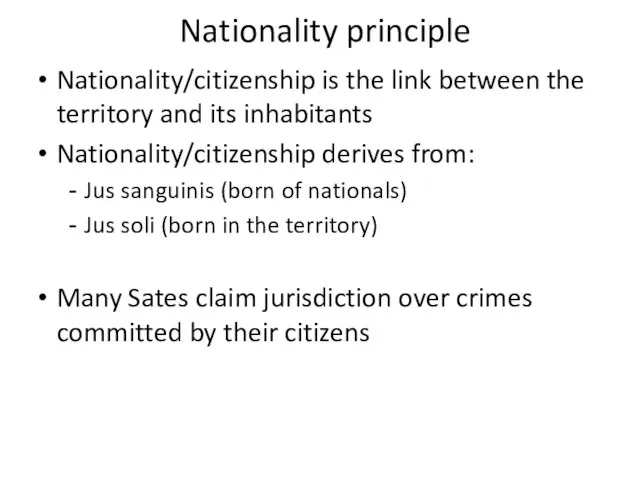

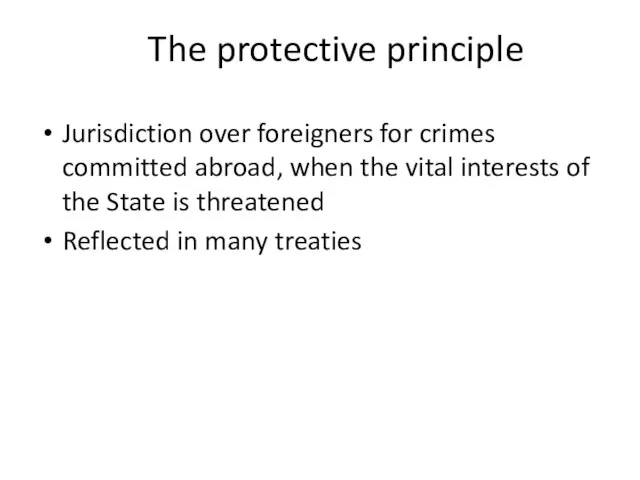
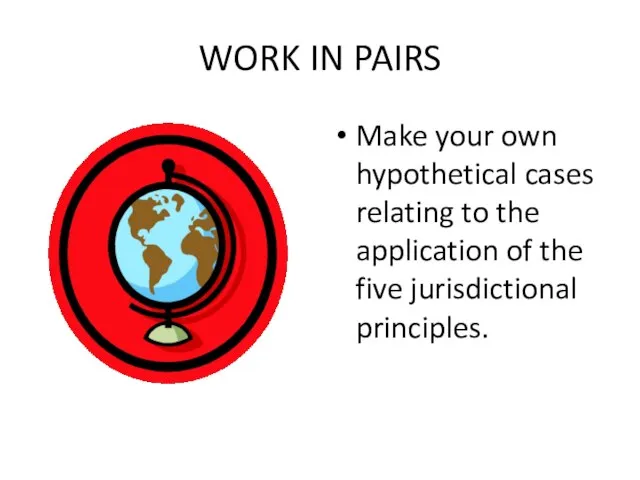
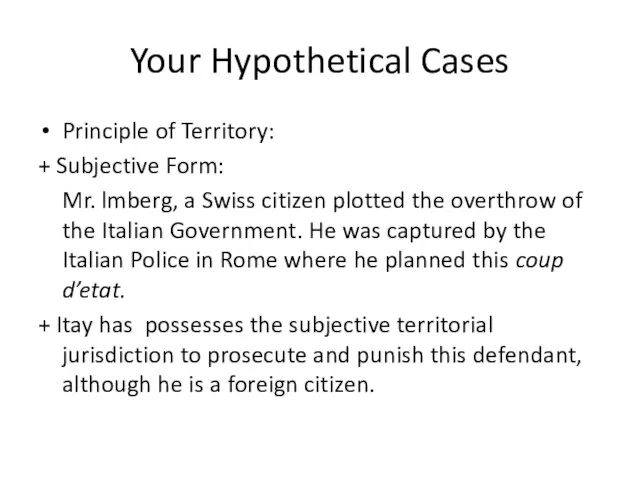
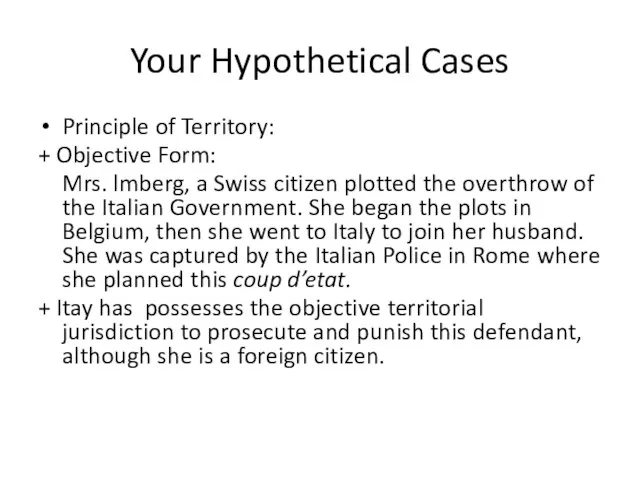
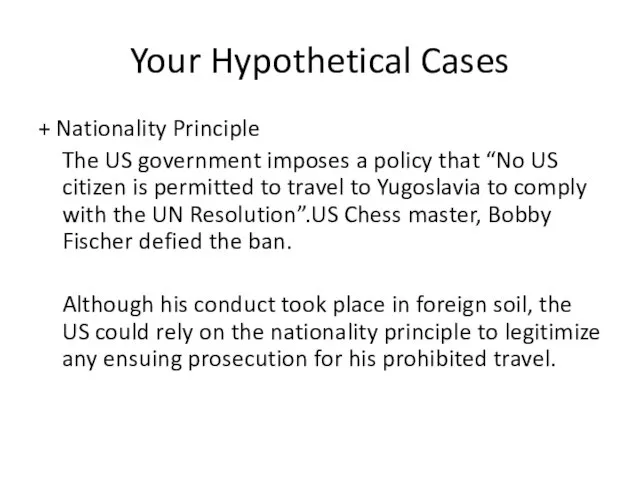
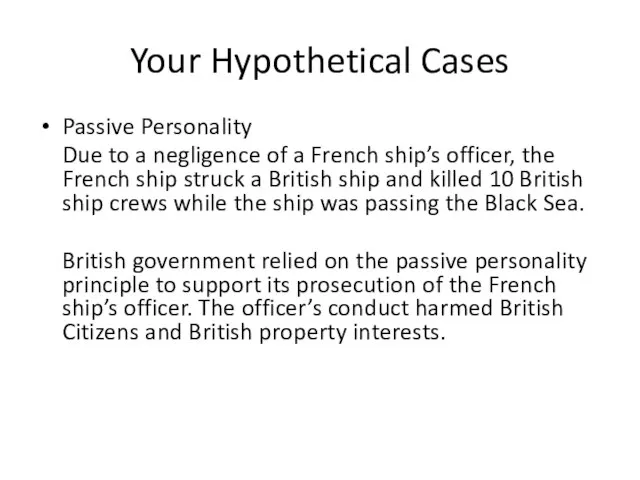
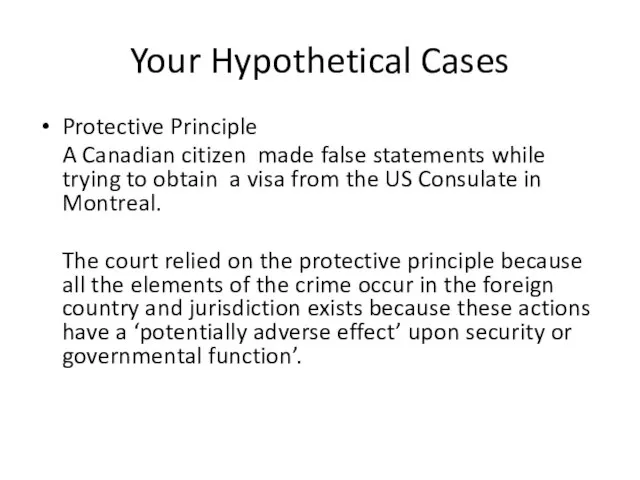
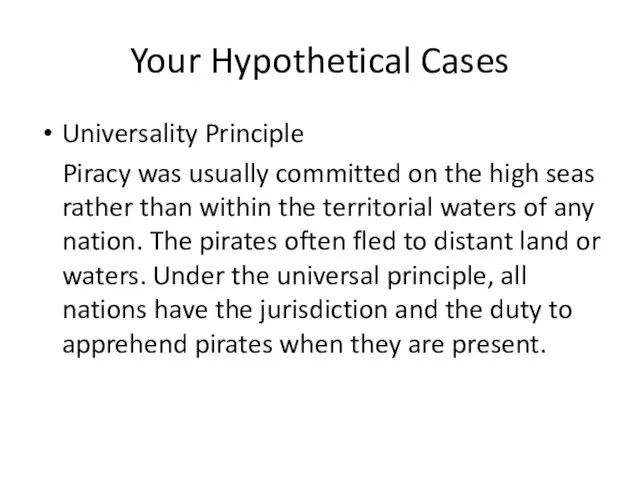
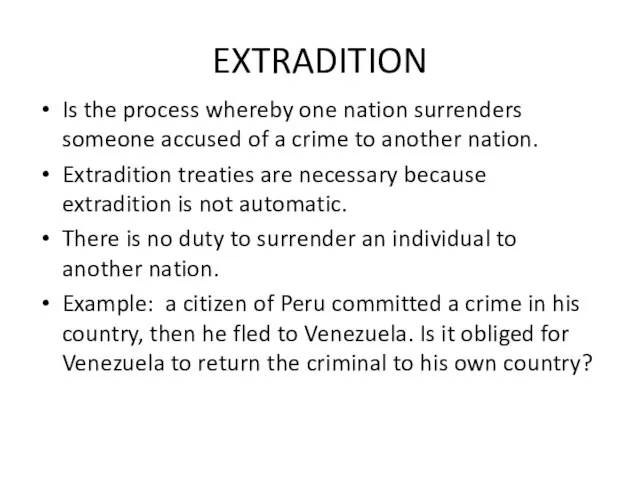
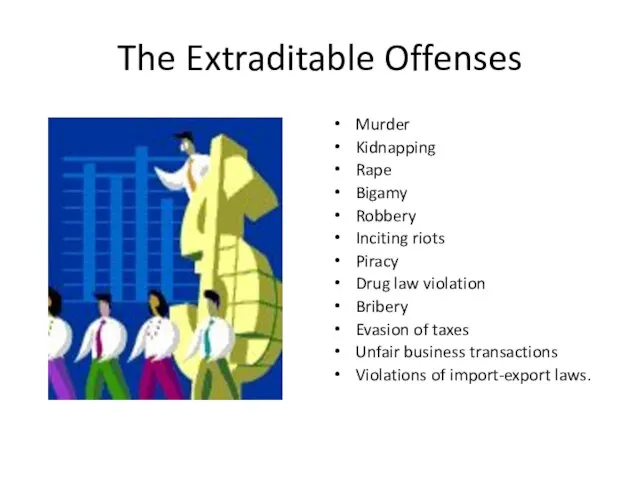
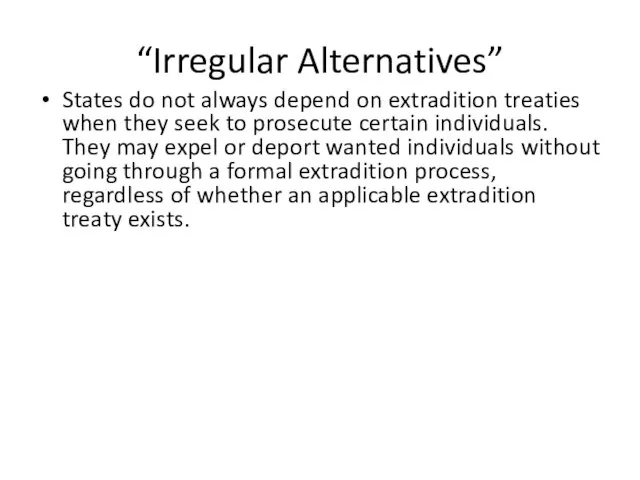
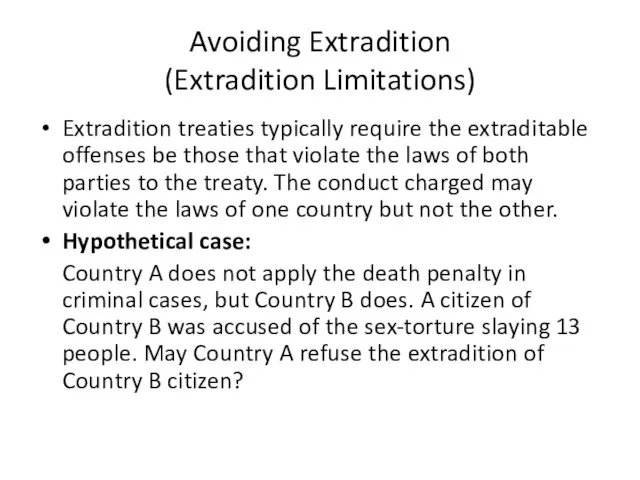
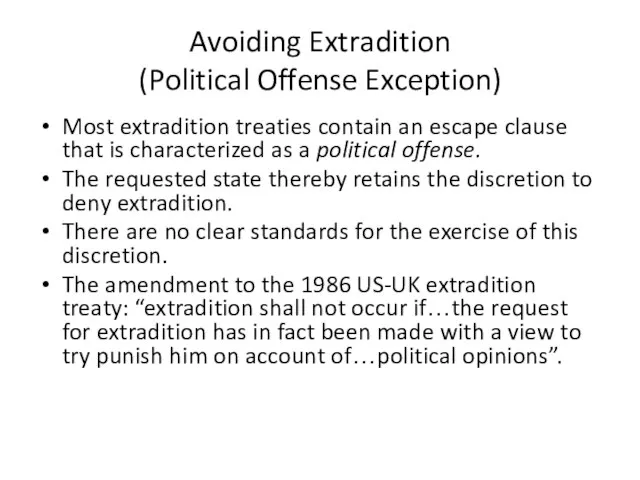
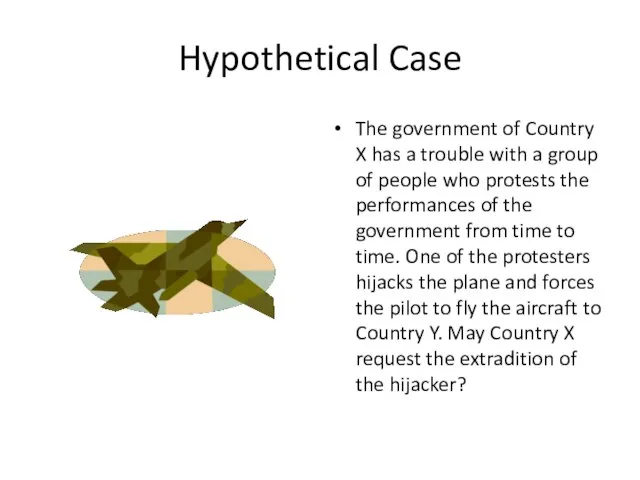

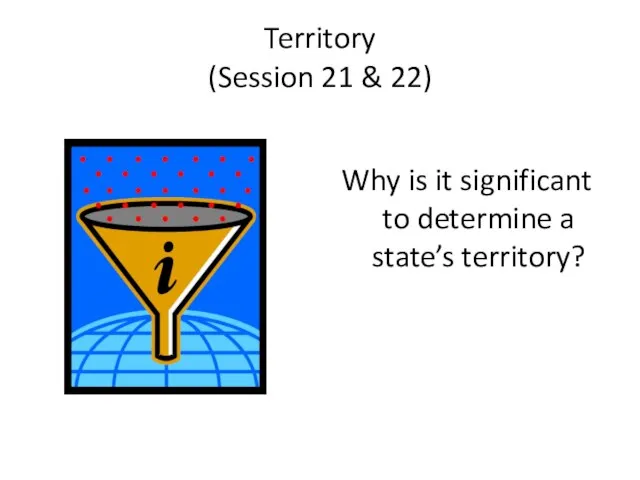
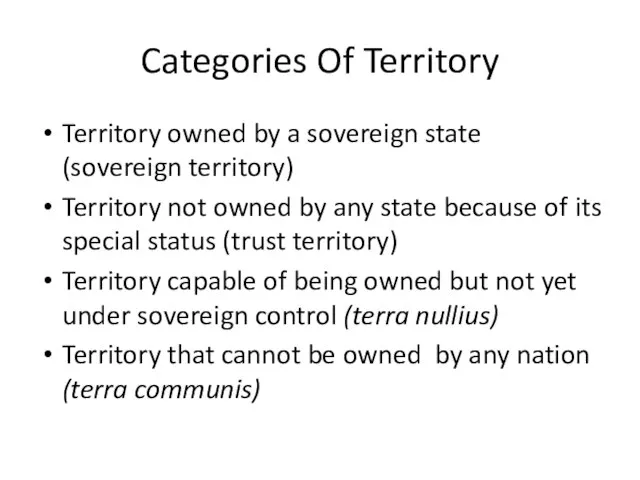
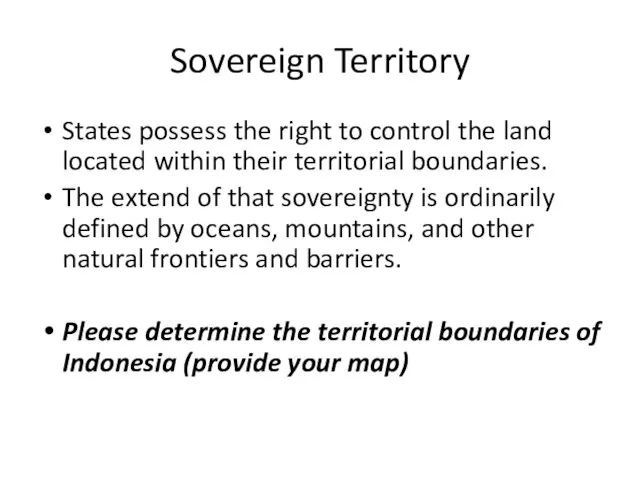
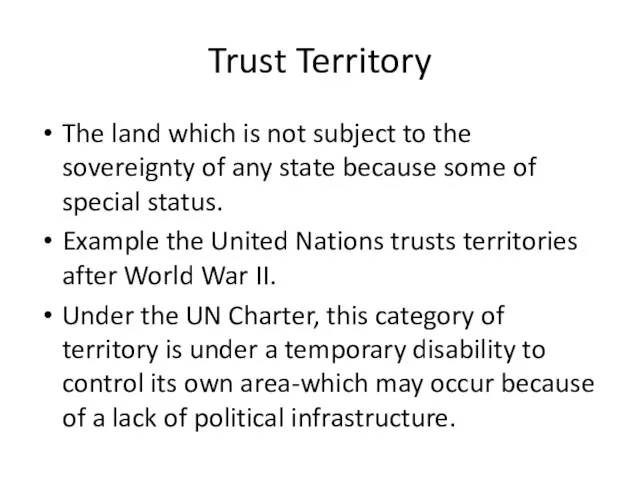
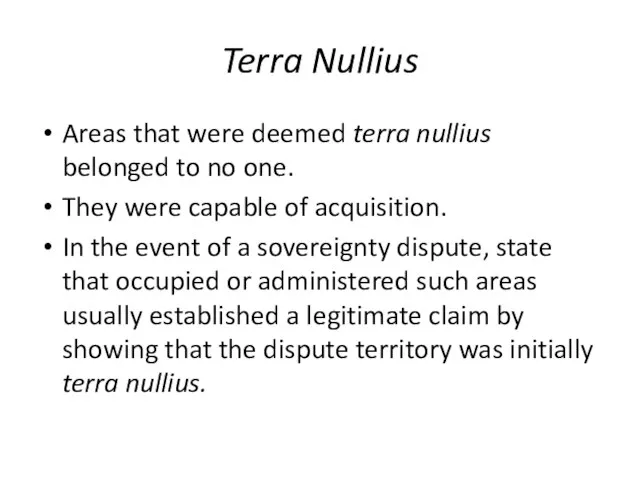

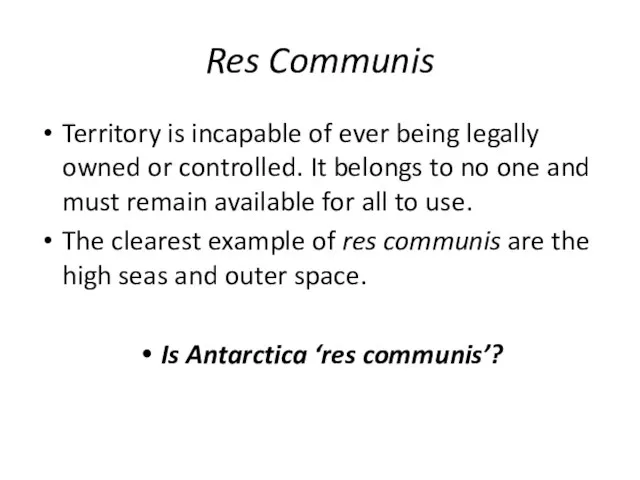
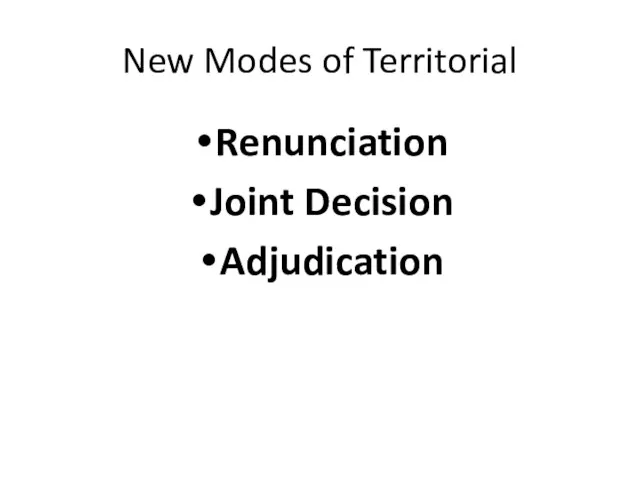
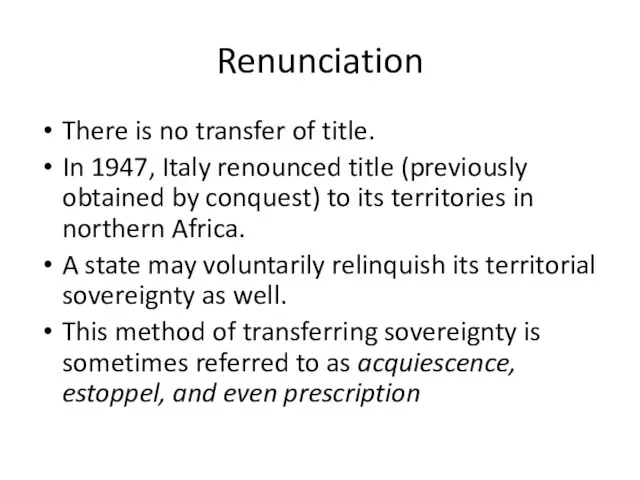
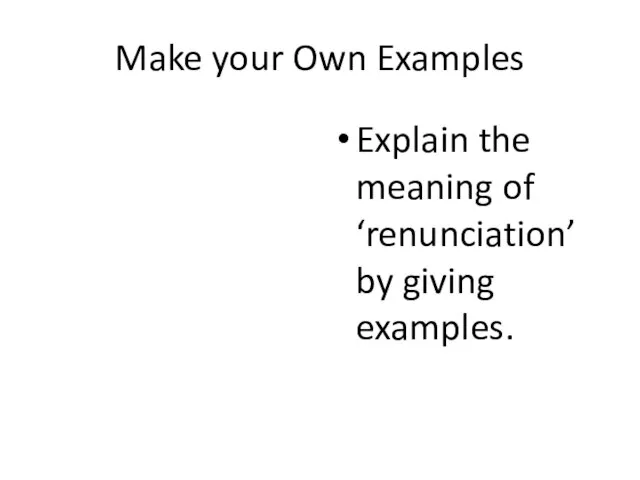
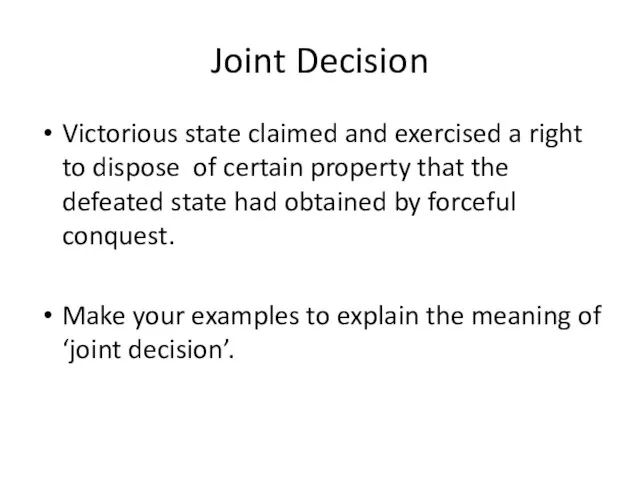
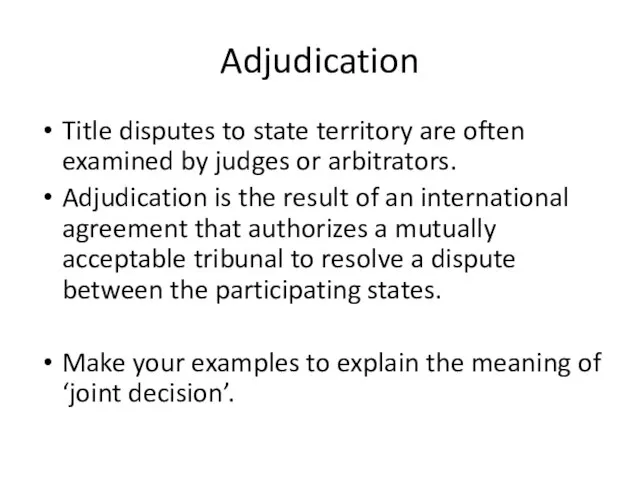

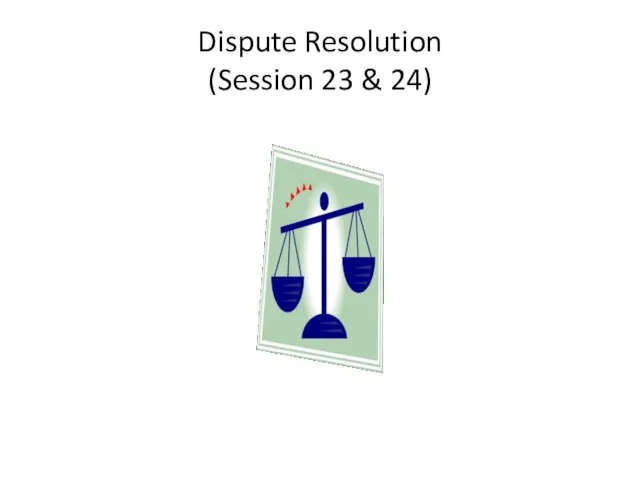
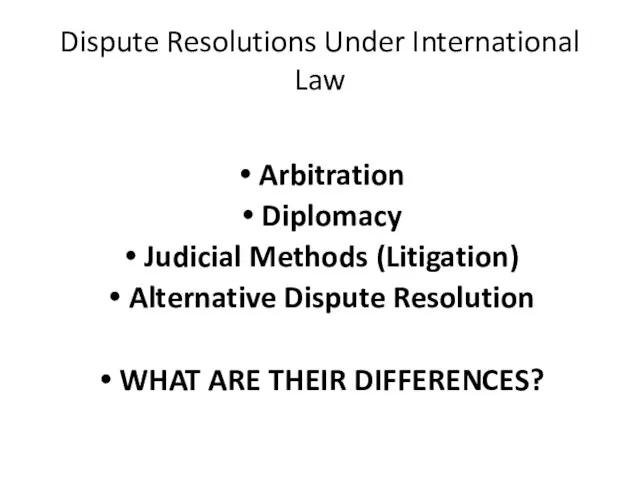

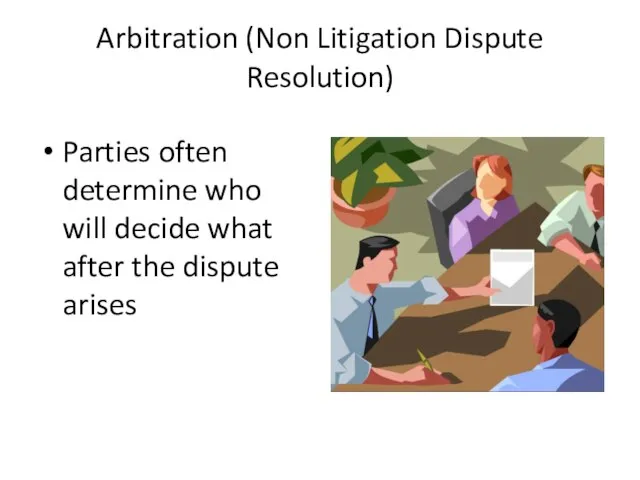
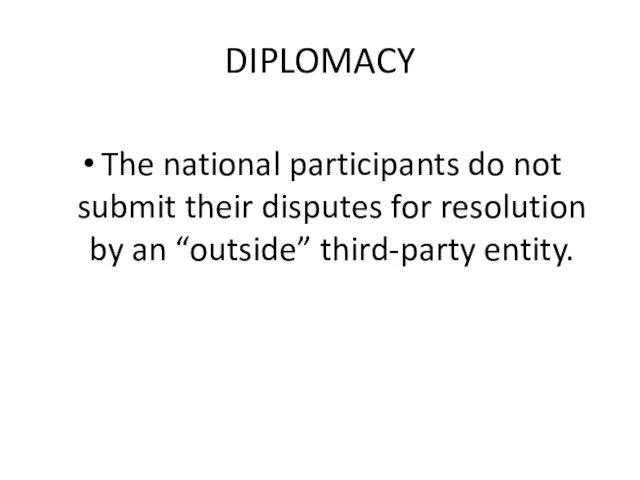
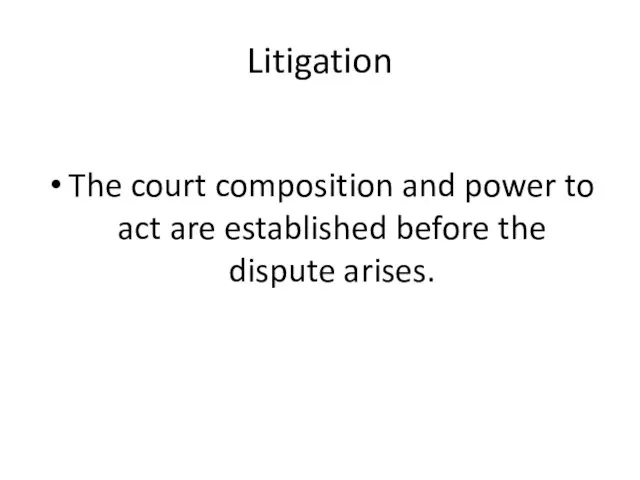
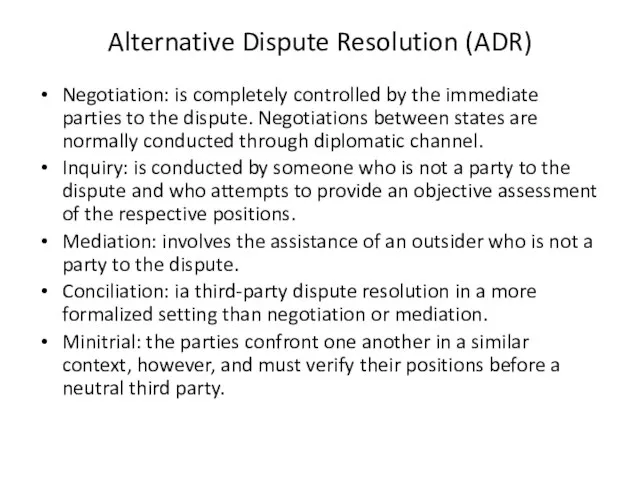
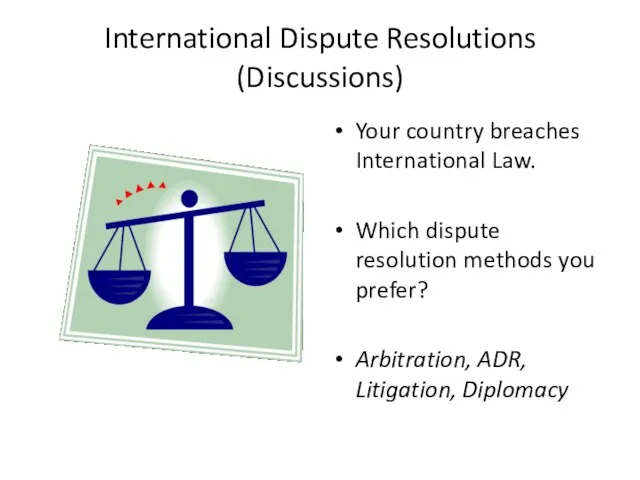
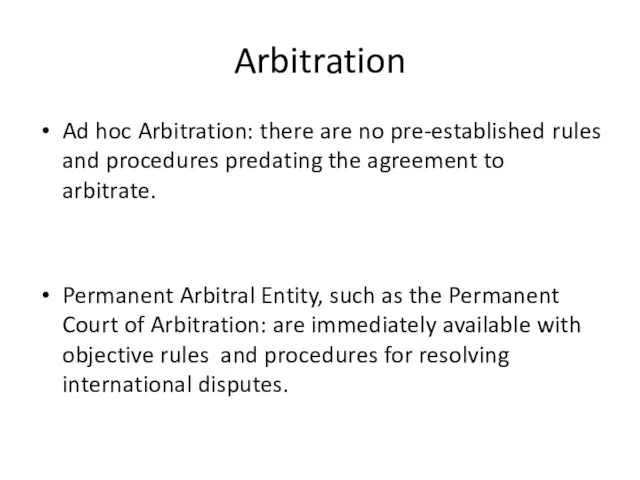
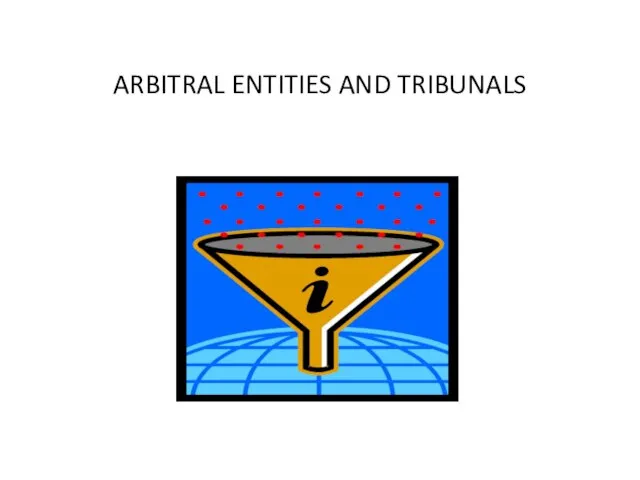
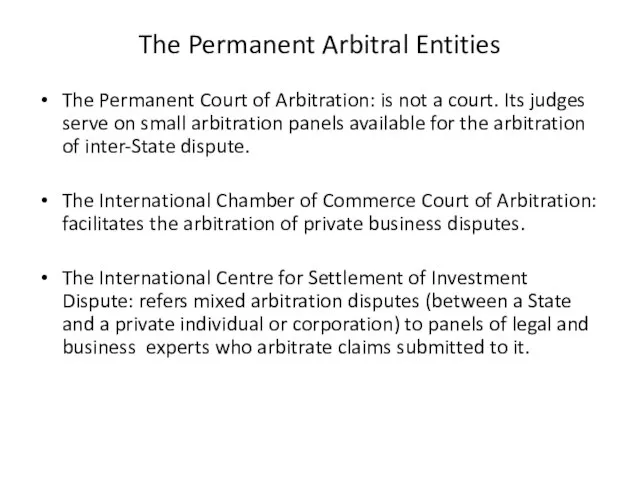
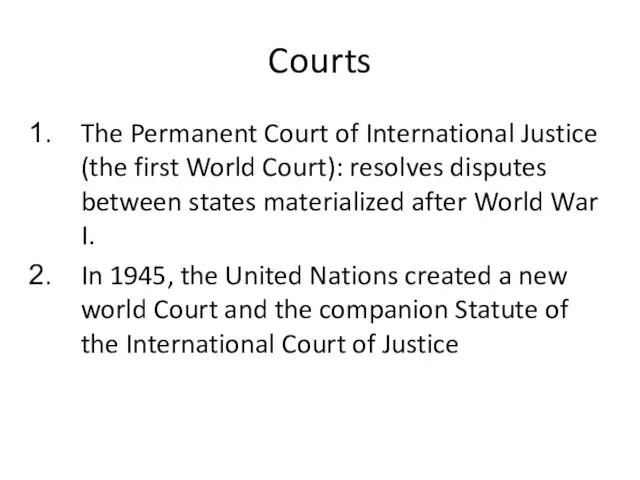
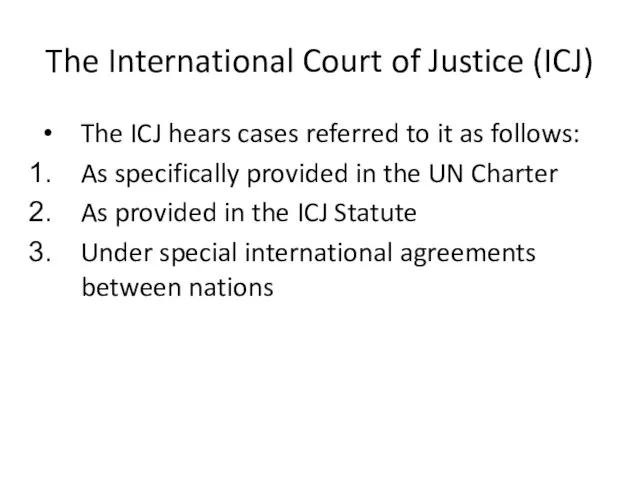
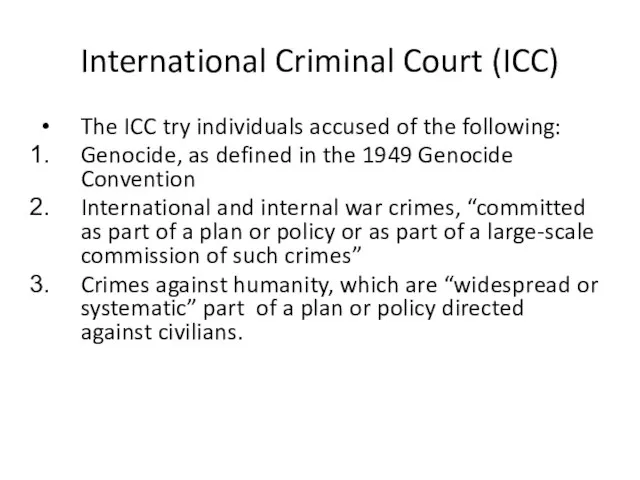
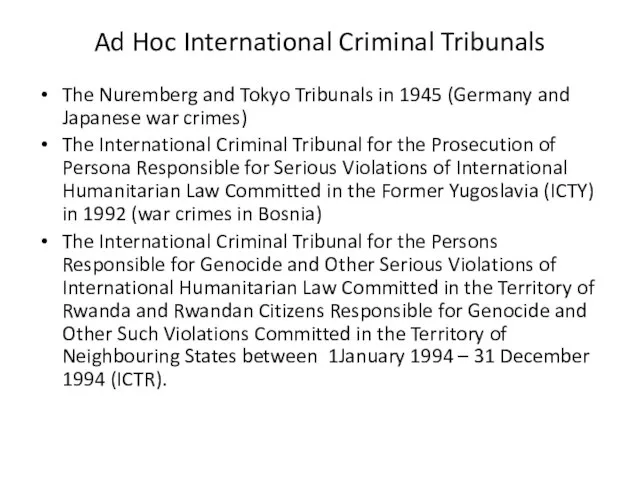
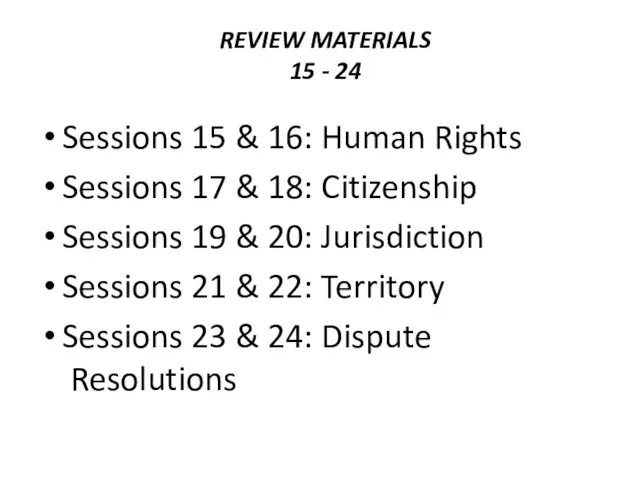
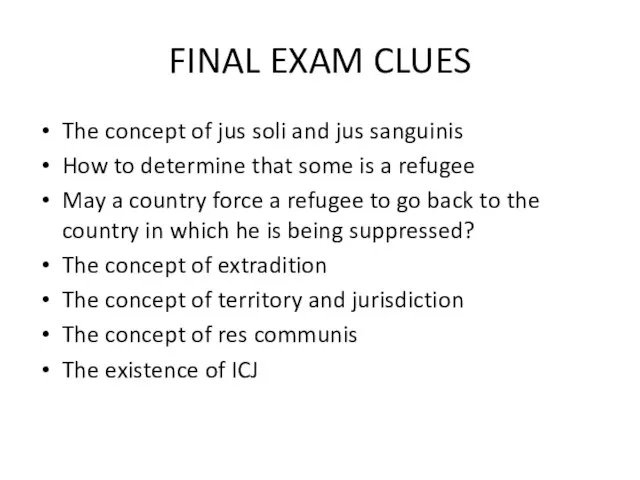

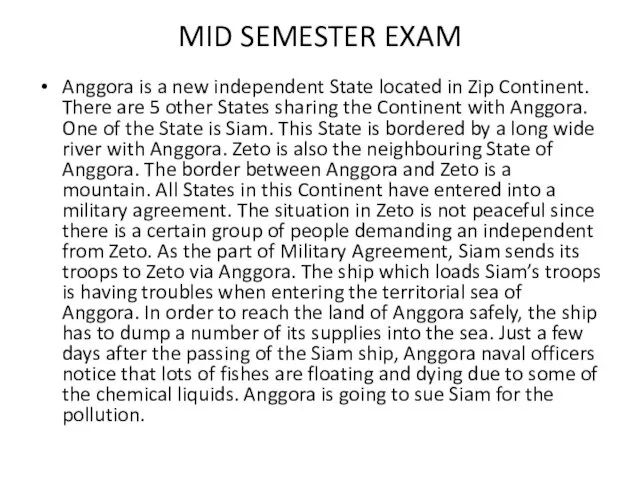
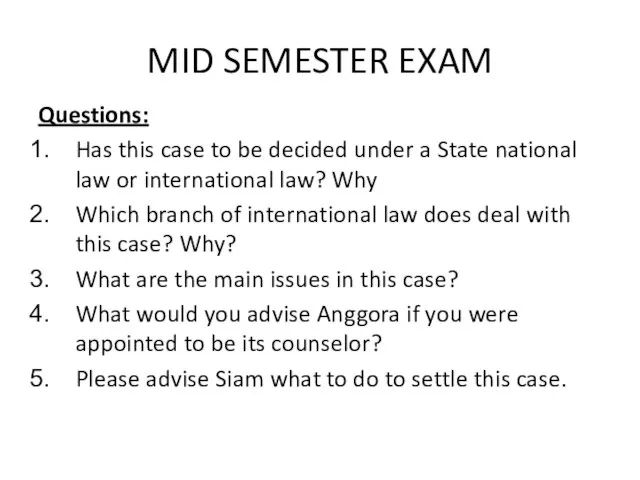
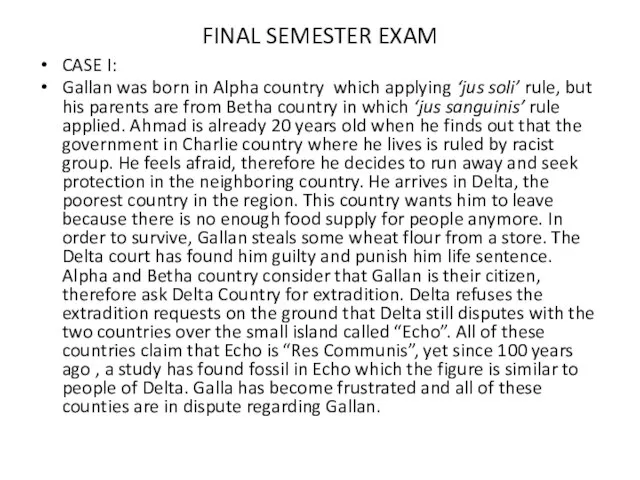
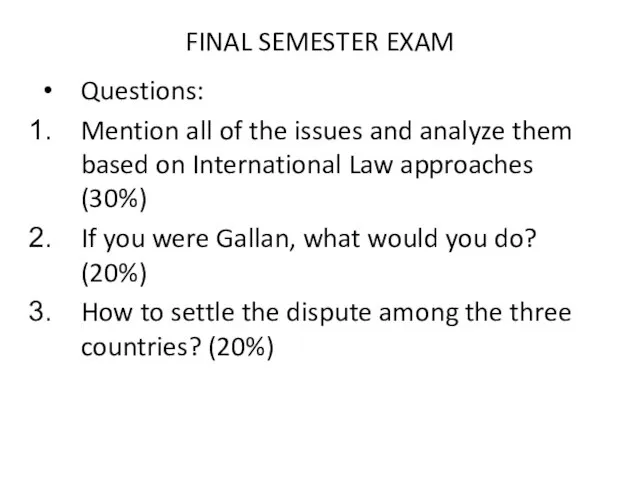
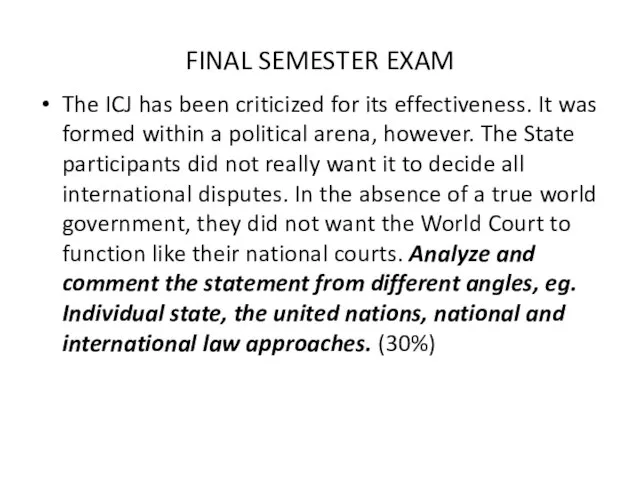
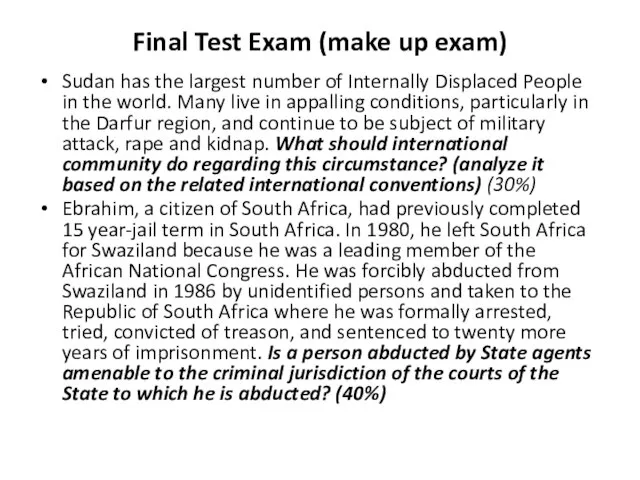
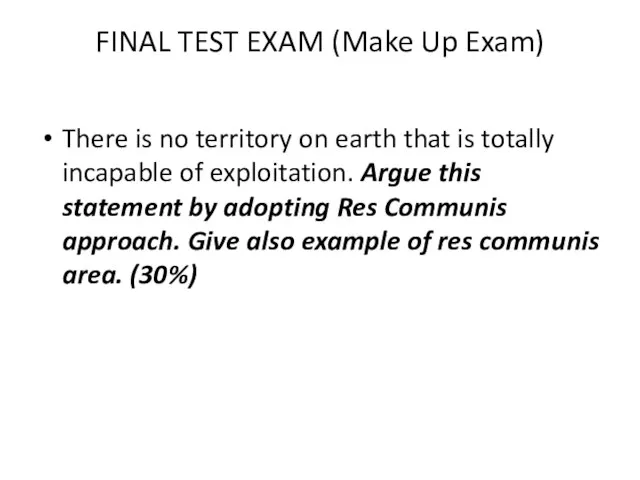
 Средства выразительности
Средства выразительности Преобразование плоскости
Преобразование плоскости Центр ГИМС ГУ МЧС России по Мурманской области. Карта размещения инспекторских подразделений
Центр ГИМС ГУ МЧС России по Мурманской области. Карта размещения инспекторских подразделений Научиться любить
Научиться любить Создание видео во Flash для презентаций.
Создание видео во Flash для презентаций. Информационные технологии
Информационные технологии Нормоконтроль технической документации
Нормоконтроль технической документации Презентация (1) (3)
Презентация (1) (3) Есть такая профессия - Родину защищать
Есть такая профессия - Родину защищать Объёмы тел
Объёмы тел Самые ужасные блюда мира
Самые ужасные блюда мира Концептуальное искусство
Концептуальное искусство Презентация на тему Решение задач на построение графиков алгебраических функций на примере линейной функции
Презентация на тему Решение задач на построение графиков алгебраических функций на примере линейной функции  Химия растворов
Химия растворов  Программа работы органа ученического самоуправления по защите прав детей предупреждению правонарушений школьников
Программа работы органа ученического самоуправления по защите прав детей предупреждению правонарушений школьников Астрометрическая поддержка работы телескопов с узким полем зрения
Астрометрическая поддержка работы телескопов с узким полем зрения Земельный участок
Земельный участок Рассказ об Англии
Рассказ об Англии 12. Термическая обработка
12. Термическая обработка Oriflame. Запуск 1 кампании 2021 года
Oriflame. Запуск 1 кампании 2021 года Мазикова Роза Анатольевна
Мазикова Роза Анатольевна Уроки, извлеченные из происшествий ООО КАТКонефть
Уроки, извлеченные из происшествий ООО КАТКонефть Коллектив и личность
Коллектив и личность Основные направления культуры России первой половины XIX века
Основные направления культуры России первой половины XIX века Дневник достижений капоэйра
Дневник достижений капоэйра Медиаразмещенияв Украине и России
Медиаразмещенияв Украине и России Презентация на тему Прямоугольный параллелепипед. Куб
Презентация на тему Прямоугольный параллелепипед. Куб  Особенности маркетинга материально-технических средств. Лекция № 4.1
Особенности маркетинга материально-технических средств. Лекция № 4.1